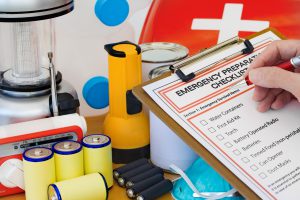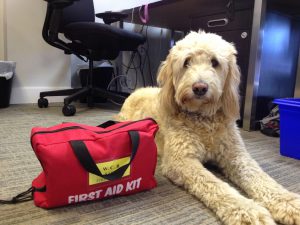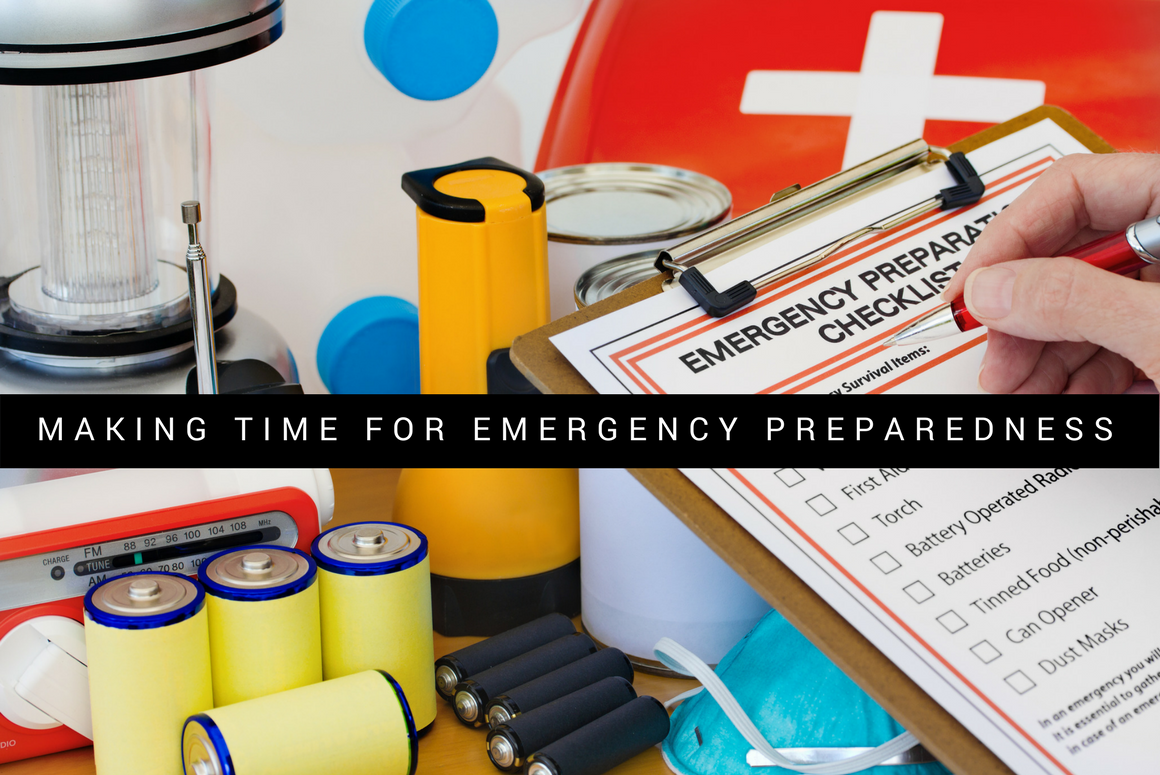We know that thinking about an emergency, disaster or other unforeseen event is hard, and preparing for any of them can seem like a huge job. Many people don’t know where to start, so they put things off, and never get back around to it. There’s no doubt that we all want to be prepared but getting overwhelmed can stop good intentions in their tracks.
To help you out, and to reduce any concerns you might have about getting together an emergency kit or plan, we’ve put together some key topics, each with a few simple tasks that you can tackle one-at-a-time, at intervals that work best for you and your family.
Make a Plan
 By having a plan, you can ensure you and your family know what to do, and, in case you aren’t together, how to meet, and communicate in an emergency. Include everyone in your home as you make your household plan, and consider these planning tasks:
By having a plan, you can ensure you and your family know what to do, and, in case you aren’t together, how to meet, and communicate in an emergency. Include everyone in your home as you make your household plan, and consider these planning tasks:
- Know the risks of your area – by having specific knowledge ahead of time, should an event occur, you can make the decisions that are best for you and your family.
- Make sure your home is safe – check the batteries on your smoke alarms regularly, ensure you have a working carbon monoxide detector, install fire extinguishers, and stock your first aid kit.
- Plan for pets – if you must evacuate your home, pets aren’t always allowed in public shelters or hotels, so prepare to take your pet with you to a friend or relative, or check out pet-friendly facilities in your area (and further out in case of a widespread evacuation).
- Sign up for emergency alerts and know how officials will communicate with you during a disaster
Food & Water
Most water supplies rely on power to make them work, and all fridges and freezers do so for food. If there is a standard outage or a disaster that causes power to go out for any length of time, making sure you have enough food and water to last at least three days can help you make it through until power is restored or emergency services can reach you:
- Make sure you have 72 hours’ worth of water stored for your household – you need one gallon (or two litres) per person per day, and might want to consider two extra litres per person for cooking and cleaning
- Collect and store emergency food in a plastic tub with a lid – choose food that won’t spoil and be sure to replace items regularly according to expiry date
- Include special dietary items for any family members that need them – this ensures that everyone has what they need to stay healthy and to meet any specific requirements
First Aid
 Having first aid supplies and skills can come in handy in absolutely any situation. Being able to help others in a medical emergency can make all the difference if you have to wait for first responders to arrive.
Having first aid supplies and skills can come in handy in absolutely any situation. Being able to help others in a medical emergency can make all the difference if you have to wait for first responders to arrive.
- Make or buy first aid kits for your home or car (or anywhere you might find yourself regularly) – just like your main emergency kit, you can add one or two items at a time
- Consider getting formal training in first aid, CPR, AED or pet first aid – you can take these classes through organizations such as the American Red Cross or St. John’s Ambulance, and some workplaces offer classes for their employees
Emergency Kit
An emergency kit is a critical part of any emergency preparedness plan. Most kit items can be purchased in general stores, and can be supplemented with specialty items as needed. Your emergency kit should provide you with a variety of items that are important in an emergency, and should be portable in case you need to evacuate.
- To get your kit started, you can add one or two must-have items each time you go to the store
- Create an emergency kit for your pets, including carriers and leashes, in case you have to evacuate your home
- Make kits for your office or car so that you are prepared for any emergency, anywhere
Remember, you don’t have to do everything at once! Choosing one or two things to focus on each week or each month means that you can spread out the effort and the cost, making emergency planning a little less scary.
What are some of the ways that you’ve made preparing for an emergency a little easier on yourself? Share your tips with us on Facebook and Twitter.
Terms and Conditions
All content provided on this blog is for informational purposes only. The owner of this blog makes no representations as to the accuracy or completeness of any information on this site or found by following any link on this site. The owner will not be liable for any errors or omissions in this information nor for the availability of this information. The owner will not be liable for any losses, injuries, or damages from the display or use of this information. This policy is subject to change at anytime.

